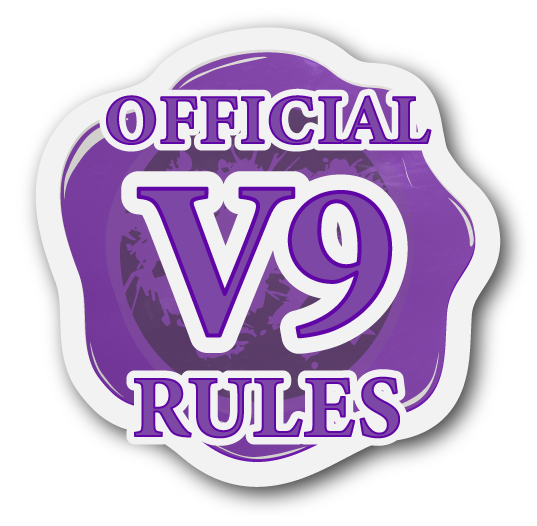V9: Armor Rating Modifiers
- The Amtwiki is the official home and primary source for Amtgard V9 Rules as of February 25, 2023.
- These rules are currently in Open Alpha Playtest. See the Playtest Disclaimer for more details.
- To learn more about Amtgard V9 Development, please visit Amtgard.com.
- To view the current Amtgard V8 ruleset, please see the Amtgard V8 Rulebook.
Armor Modifiers
Armor pieces can be granted bonuses or penalties to their Armor Rating based on the quality of construction or appearance. Multiple points can be awarded and penalized simultaneously as long as they each correspond to each unique feature or collection of features that would warrant the bonus or penalty if viewed on its own.
Superior Appearance
Bonus points may be awarded to armor that displays an exceptional appearance above and beyond the typical appearance of similar pieces in its style. This includes but is not limited to: tooling, etching, gilding, and fluting, as well as notable use of colors, shapes, weaves, etc. These examples do not represent an exhaustive list and consideration should be given to any piece that obviously goes above and beyond the base construction requirements to create an aesthetically pleasing piece.
Inferior Appearance
Points may be deducted from armor that displays an appearance well below the typical standard expected for similar pieces in that style. Examples include tarnished/poorly-maintained armor as well as visibly inauthentic or degrading materials. This penalty does not apply when the piece is worn as a part of a complete outfit that is intentionally designed to look shoddy or battle-worn.
Superior Construction
Bonus points may be awarded to armor constructed with exceptional techniques that provide a meaningful increase in durability over the standard for the material being used. This includes but is not limited to: solid/riveted rings, hardened material, noticeably tighter spacing than required, etc. This bonus may also be granted to pieces that are at least 75% steel or equivalent metal. These examples do not represent an exhaustive list and consideration should be given to any piece that obviously goes above and beyond the base requirements to create a more durable piece.
Inferior Construction
Points may be deducted from armor for inferior construction techniques or a meaningful reduction in expected durability when compared to the standard for the material being used. Examples include but are not limited to: obviously unfinished armor, brittle/cracked material, loose connection points, and shoddy workmanship.
Layered Armor Bonus
When calculating the Armor Point Total, if multiple unique pieces of Worn Armor are layered on top of each other as part of a complete outfit, the rating of any layered/overlapping areas will be rating of the highest-tier piece plus 1, up to that tier’s max.
- A piece of armor already at max rating will not receive any additional value from layering.
- Each layered piece should be able to act as armor on its own if it were not layered.
- Any part of layered armor that extends beyond the layering is calculated at its normal rating.
- All layered armor pieces must be at least partially visible in a way that does not misrepresent the wearer’s armor point total or armor coverage when observed by another player from 20ft away. This especially true in the cases where a lower-tier armor is layered on top of a higher-tier piece.
- There is no additional bonus for layering more than two pieces.
Material Thickness
Each piece of worn armor must be crafted from materials that meet a specific thickness criteria in order to qualify as armor. Multiple layers of material may permanently affixed to each other to increase thickness however extra thickness caused by adhesives or empty space should not be factored into the new measurements. One bonus point may be awarded or deducted for Superior or Inferior thickness according to the chart below.
| MATERIAL THICKNESS REFERENCE CHART | |||||||
|---|---|---|---|---|---|---|---|
| Material | Inferior (Minimum) |
Standard | Superior | Notes | |||
| Cloth | Cannot be less than standard |
1/16" 1.60mm |
1/8" 3.18mm | ||||
| Light Leather | 4oz 1/16" 1.60mm |
6oz 3/32" 2.39mm |
8oz 1/8" 3.18mm | ||||
| Strong Leather | Cannot be less than standard |
10oz 5/32" 3.96mm |
12oz 3/16" 4.78mm |
Less than standard is Light Leather | |||
| Rigid, Non-Metal | 1/8" 3.18mm |
3/16" 4.78mm |
1/4" 6.36mm |
Material Density at least 0.9g/cm3 (equivalent to HDPE) | |||
| Aluminum | Steel | Aluminum | Steel | Aluminum | Steel | ||
| Round Rings | Cannot be less than standard |
16awg 0.051" 1.290mm |
18awg 0.040" 1.024mm |
14awg 0.064" 1.628mm |
16awg 0.051" 1.290mm | ||
| Flat Rings | 16ga 0.051" 1.291mm |
18ga 0.048" 1.214mm |
14ga 0.064" 1.628mm |
16ga 0.060 1.518mm |
Measure along thinnest axis | ||
| Sheet Metal | 18ga 0.040" 1.024mm |
20ga 0.036" 0.911mm | |||||
| Scales | 20ga 0.032" 0.812mm |
22ga 0.030" 0.759mm |
18ga 0.040" 1.024mm |
20ga 0.036" 0.911mm |
16ga 0.051" 1.291mm |
18ga 0.048" 1.214mm | |
Rating Armor & Calculating Points Armor Tiers · Armor Rating Modifiers · Material Thickness · Supplemental Armor · Calculating Armor Point Totals
Physical Armor Gameplay Rules · Construction Rules · Rating Armor & Calculating Armor Points · Armor Styles
Armor General Rules · Natural Armor · Physical Armor
Equipment Equipment Basics · Equipment Use Terms · Weapons · Shields · Armor · Color Code · Visual Indicators
